Hi Everyone,
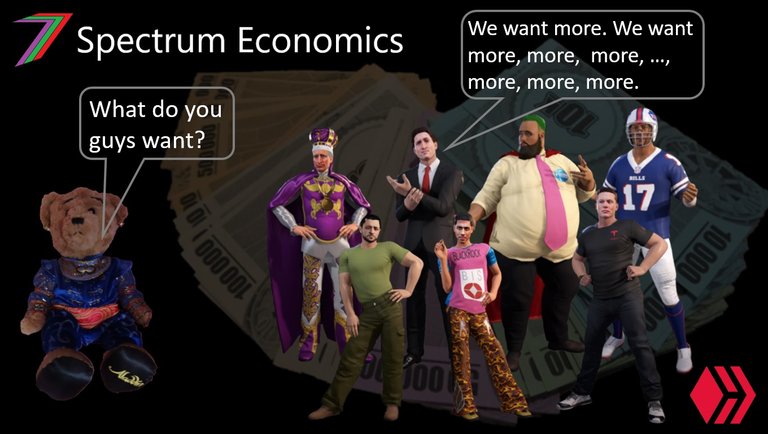
This is my second post in my ‘Playbook’ series. My first post was Life is a Continuous Series of Games. The series focuses on explaining life as a series of games. The main areas it covers are competition and cooperation (introduced in the first post), perception (discussed throughout the series), planning and foresight, sustainability and preservation, controlling the narrative, learning from mistakes, and many more. The series begins with a broad look at how success can be defined, but later on, it focuses on power and wealth.
At the start of a series, I normally know or have a good idea of how many parts it will contain. This series is a little different. It evolves and develops as it goes along. I do not know at this point how deeply I will explore various topics, or even some of the topics I might include. My opinion of their relevance is likely to change as I explore further.
In addition to this series, I have posted three other posts that discuss similar topics but from a slightly different perspective. These posts are as follows:
- Do You Strive to be Someone’s Pet?
- Fitting into the Ecosystems Around Us – Part 1: Human Domination
- Fitting into the Ecosystems Around Us – Part 2: Preserving Ourselves and the Ecosystems
This series takes an amoral approach to how the game of life is pursued. This is particularly true when discussing those who seek power and wealth.
The Nature of Wanting More
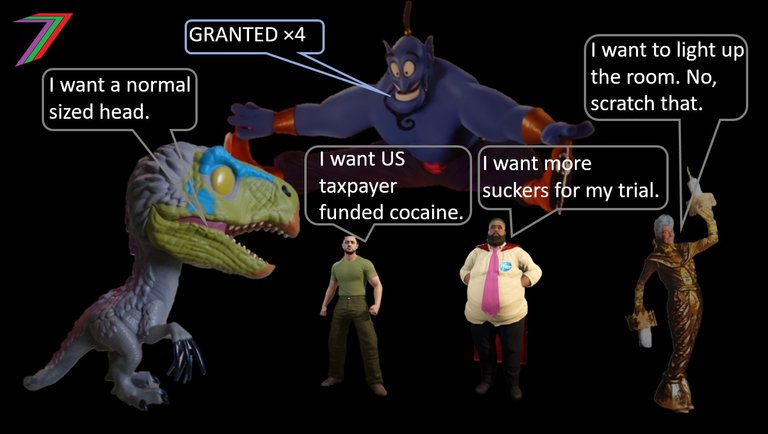
Nearly all of us desire more of something or an improvement in some aspect of our lives. We might want more money, property, respect, power, or glory. We might want to improve our homes, vehicles, relationships, or health. We could strongly argue that such desires are natural. The desire and willingness to achieve or obtain something we want is called ambition. Ambition gives us purpose and allows us to direct our energy in a meaningful way. Ambition can be good or bad for society. This depends on its net effect on others.
Even people who lack ambition desire more. Some may have previously had ambition, but were unable to achieve what they desired. This could have been because their ambitions were too high or they lacked the capability or effort to succeed. Therefore, eventually, they gave up. Others might have lacked ambition from the start.
Instead of striving to achieve or obtain something themselves, they might attempt to convince others to help them or even ask for a handout. They may claim they are unable to achieve what they desire because they are disadvantaged in some way. They may even claim they are entitled to more. Their claims may or may not be true. They may or may not be given what they desire. They would need to meet criteria established by those who control resources or appeal to those capable and willing to offer help.
Our Perceptions
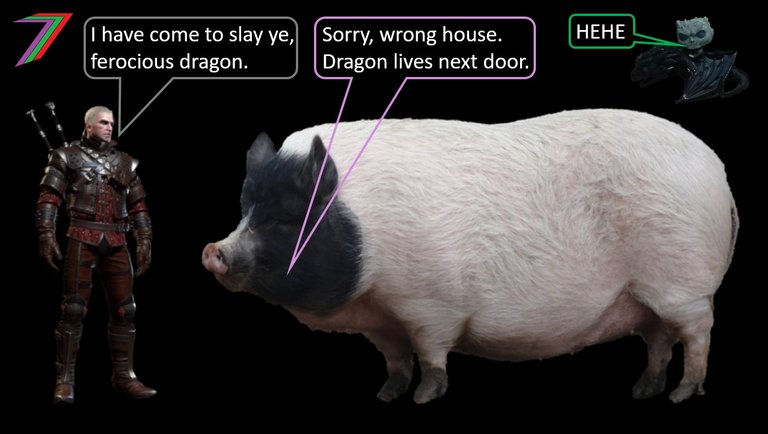
Our perceptions determine what we want and how we attempt to obtain what we want. The closer our perceptions are to reality, the more likely we are to have meaningful success. It begins with accurately perceiving what we want. If this perception is inaccurate, we will be pursuing the wrong things in life. Success in pursuing these things will not create fulfilment, but it might help us to understand ourselves a little better. Therefore, in the future, we can pursue the things we desire. However, this is not a guarantee.
Next, we need to accurately perceive how we can obtain what we want. There are many possible approaches. We could rely mostly on ourselves. We could use significant support from others. We could form alliances with others. We could try to convince others to give us what we want.
Our approach is going to depend on what we want, how badly we want it, and how plausible it is for us to pursue it. Perception in regards to meeting needs is different from the perception required to establish needs. It is much broader. We need to understand how we are able to interact with the world. It is more complicated, but also more objective. We have more clearly defined feedback loops.
Our perceptions are influenced by the combination of our environment, our experiences, the people around us, and our biology. Most of us have minimal control over how our earliest perceptions are shaped. These earliest perceptions might stay with us our entire lives. This will depend on how our perceptions were formed and if they continue to be reinforced by our life experiences.
The people we rely the most on when we are young, such as family and teachers, can teach us to be open-minded, or they can dogmatically inculcate us with a rigid and limited worldview. Religion is often used dogmatically to teach children to live a particular way and to have a particular worldview.
In a ‘liberal’ society, as we grow older, our exposure to the world is less restricted. We can choose whom we interact with, where we go, and where and how we seek out our information. If we have been taught to be open minded, our perceptions can be altered by any or all of the above. This could lead to us reassessing what we want in life as well as how we can obtain it. Most likely, moving our perceptions closer to reality.
We Can All Be Successful to a Certain Extent
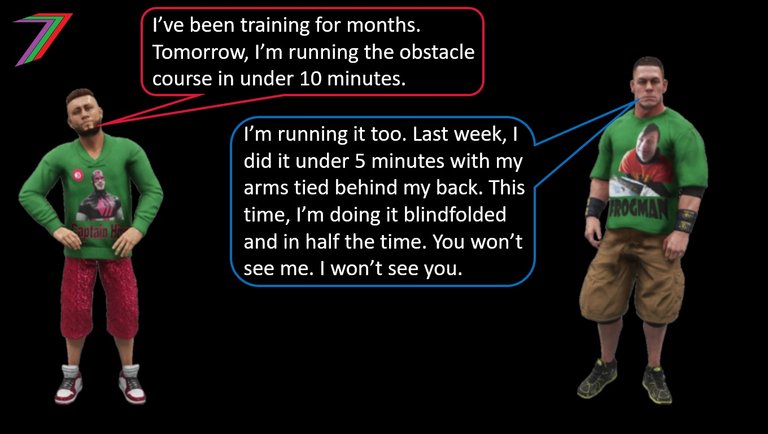
I would argue that it is possible for anyone to be successful. This is because we can define our own criteria for success. If the criteria are attainable, we can succeed. However, it does not mean that this success is meaningful. If the standard set is too low, it is too easily accomplished and therefore not fulfilling. Success is more likely to be meaningful if it is difficult to obtain. There needs to be a chance of failure. Initial failure can add to the satisfaction of success when it is finally achieved.
Obtaining meaningful success requires us to become more proficient in certain areas. This gives us a better chance of succeeding in more ambitious endeavours, which likely would have been too difficult prior to our previous success. This could be a way of working towards a long-term goal or desire, or it could be just a way of fulfilling our endless desire for more.
Power, Wealth, and Fame
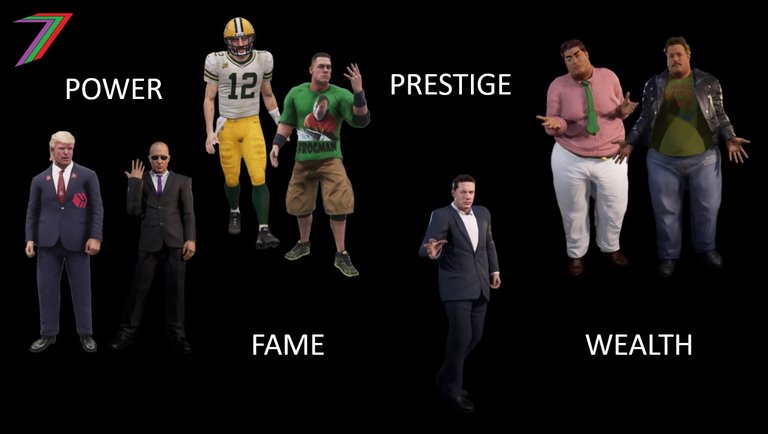
The desire for more can have a strong negative impact on others. This is true for people who strongly desire and are capable of obtaining and maintaining power and wealth. Our desire for more does not necessarily stop once we have obtained the basics or even the luxurious. It may not stop at anything. Those capable of continuing to take more will do so at the expense of others. This is most evident for those who strongly desire power, wealth, and sometimes even fame.
Even though we can define our own criteria for success, the people who have obtained power, wealth, and fame would want us to believe power, wealth, and fame are the most important indicators of success. To a certain extent, they have succeeded. They are able to do this because they control information and the distribution of information. In doing so, they are able to greatly influence our perceptions regarding success. Therefore, many believe that those with more power, wealth, or fame are more successful.
How does someone obtain power, wealth, and/or fame? Many are born into it. They reap the benefits of their forefathers. This is particularly true in regards to power and wealth. Wealth is inherited, and inherited wealth comes with long established relationships. Not all wealth is inherited. Wealth can be obtained through establishing relationships with the wealthy and powerful. This can be done if a person has a particular skill or quality that is desired by the wealthy and powerful. They would be required to use this skill in a particular way. For example, enhance or manipulate a chosen technology.
Those with power and wealth consider it necessary to help a few select others create wealth. It creates the impression that anyone can be successful. The newly wealthy often attract more attention for their success and gain a partial celebrity status. Unless they are royalty, people from families who have had wealth for generations do not attract the same level of attention.
Attention creates influence, which leads to power. Therefore, some of the newly wealthy appear to have significant power. I would argue that this is not the case. Much of the wealth of the newly wealthy is vulnerable. It is invested in companies that could be easily targeted by damaging regulations, such as social media and other technology. They can be pressured to use the attention they have obtained to promote the agenda of those who have political influence, which can be more powerful than social influence.
Who has political influence? High profile politicians, such as the prime minister and cabinet ministers in a parliamentary democracy, have political influence. However, their influence is limited and vulnerable because they have a finite amount of time in office. They could be removed because of a limited number of terms, elections, internal party politics, and even persistently bad polling. The people with the most political influence are:
- the people who have the most influence over the party, such as donors
- the people who run companies who have significant business dealings with the Government and government entities
- the people who run the companies that could become the future employers of politicians once they have left office
- the people who have the most influence over mainstream media, such as owners and sponsors
- the people who have deep, long lasting relationships with any people or businesses who have connections with politicians or mainstream media
All of the above people are extremely wealthy. To have established such connections, most of them would have been wealthy for a long time or from longstanding wealthy families. They are also more able to use their connections to protect themselves and their wealth. This is harder to achieve for the newly wealthy. If the newly wealthy are able to maintain their wealth, their children or grandchildren might become accepted as part of the established wealthy.
In regards to fame, people can be born into it. It is easier for a person from a famous family or who has at least one famous family member to become famous. Their family has relevant contacts in the industry, and they normally have the resources to train their aspiring family members to reach a higher standard. We could also argue that a person from a famous family may have also inherited some of the necessary traits to perform well in a profession that attracts fame.
People outside of famous families can become famous. They need to possess the relevant qualities required by the powerful and wealthy and, to a certain extent, the already famous. Charisma is often valued. It can be applied to music, acting, journalism, politics, etc. Looks and presentation are often important. Famous people need to look a particular way. For women, it is to be underweight and sometimes to have enhanced physical features. For men, it is slim with defined muscles. They need to look different from the average person, but can be portrayed as better. They want people to idolise them and even try to mimic their appearance. Most people will be unable to do so. Thus, they begin to feel like failures. This reduces their self-esteem, which reduces their chances of succeeding in other, more realistic areas.
With power, wealth, and fame, there is also prestige. Prestige is sought after, as it is a form of recognition for achievements and actions. Therefore, it provides third-party confirmation of success. Prestige and fame are often intertwined. People can become famous because they have been acknowledged for achieving or doing something exceptional. People can be chosen to be famous and therefore, obtain prestige as a method of reinforcing their fame.
The powerful and wealthy can be very generous. They make large donations and support charitable causes. In return, they can be given prestigious awards and have buildings named after them. At the same time, this builds their reputation for being a good person. This increases their influence and power.
The above relates more to the intended projection of prestige. To a certain extent, prestige can be obtained by most. It involves being recognised for doing something for society out of perceived generosity and kindness. This could be consistent voluntary work relating to helping a group of people, possibly disadvantaged. This could relate to self-sacrificing behaviour for the benefit of others. This sort of prestige is most likely to be only recognised locally, but that is often sufficient for people who genuinely gain joy from helping others.
Conclusion
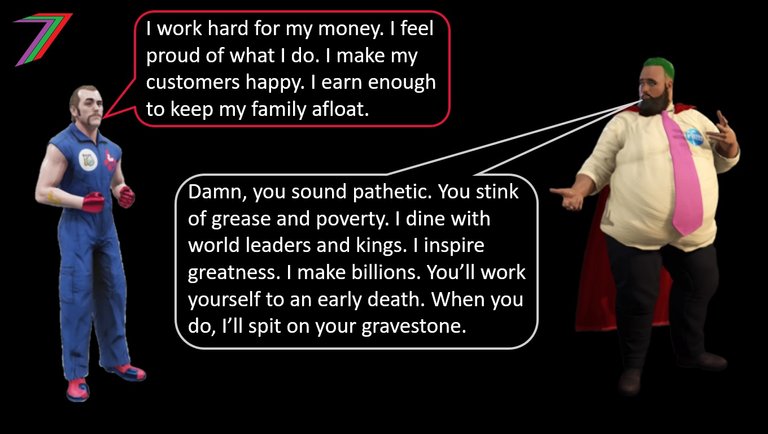
To desire more is natural. At a basic level, it is a trait for survival. Having more increases our chances of surviving. This is particularly true during difficult times when resources are scarcer. We see this with animals that hoard food. We just do this with a wider range of resources. On a more sophisticated level, it gives us something to strive for and helps us maintain value in our lives. A negative aspect of our continuous desire for more is that we are never fully satisfied with our lives. Even if we achieve everything we thought we wanted, there will always be something else we desire. We might be much happier if we could focus on what we have rather than what we want.
Power, wealth, and fame are difficult to obtain. This is because the existing powerful and wealthy protect them. The only outsiders that are welcomed are those that serve the benefit of the existing group. Ability and ambition alone are not sufficient to achieve great wealth or power. If some form of obedience to the existing powers does not accompany them, they will be seen as a threat. The existing powerful and wealthy will go to great lengths to ensure such people do not rise to any prominence or achieve any sustainable success.
Another post that you might find relevant to this topic is my 2020 posts titled 'Power, Money and Me Me Me'.
My New Book, Sapien Loop

I have published an ebook on Amazon; it is titled ‘Sapien Loop: End of an Era’. The book is fiction. I do not normally write fiction. However, I felt it was appropriate considering what is happening in the world today. Freedom is the most important thing we have, but we are gradually losing it. I have covered this in many of my posts.
In the story, most citizens do not understand the concept of freedom because they have never really experienced it. In essence, the story is about an alien world that might represent our not-so-distant future. There are many other elements to the story that are an abstract and exaggerated version of our reality. I believe this book to be an important read, and I believe it has the potential to change the way you think.
Brief Summary of Sapien Lopp
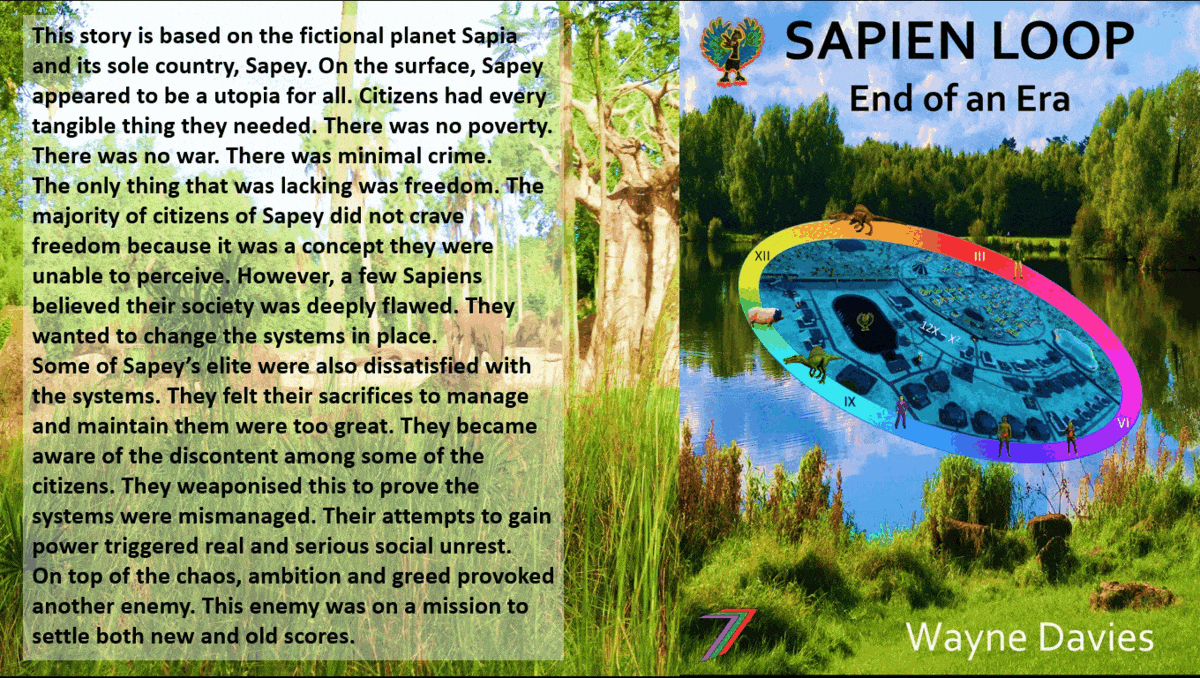
This story is based on the fictional planet Sapia and its sole country, Sapey. Sapey is portrayed as a form of utopia for all its citizens. No poverty. No war. Almost no crime. Opportunities for all.
This was enough for most citizens, but not all. In one of the small regions, some of the citizens had become discontent. They felt something important was missing in their lives. Their discontent did not go unnoticed. Some of the Sapey elite wanted to weaponise this discontent to gain more power. This created more chaos than they anticipated. This led to further widespread social unrest.
On top of the chaos, ambition and greed provoked another enemy. This enemy was on a mission to settle both new and old scores.
If you want to buy a copy of the book, below are links to the relevant Amazon websites for each country it is available in. The book is priced at approximately US$5.08.
- Amazon USA
- Amazon UK
- Amazon Germany
- Amazon France
- Amazon Spain
- Amazon Italy
- Amazon Netherlands
- Amazon Japan
- Amazon Brazil
- Amazon Canada
- Amazon Mexico
- Amazon Australia
- Amazon India
I am also running monthly contests where participants are required to answer questions based on the book. The prize is 30 Hive Power plus upvotes for the first twelve entries. You can recover the cost of the book with just one win.
Hive: Future of Social Media
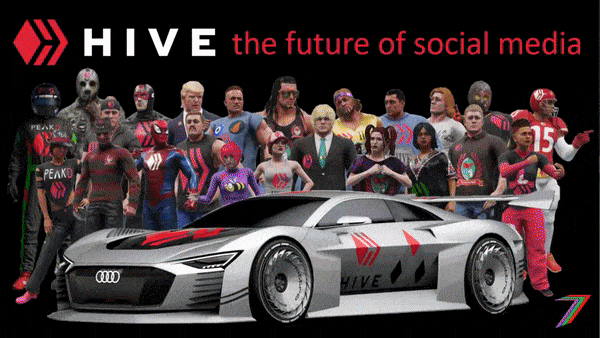
Spectrumecons on the Hive blockchain

